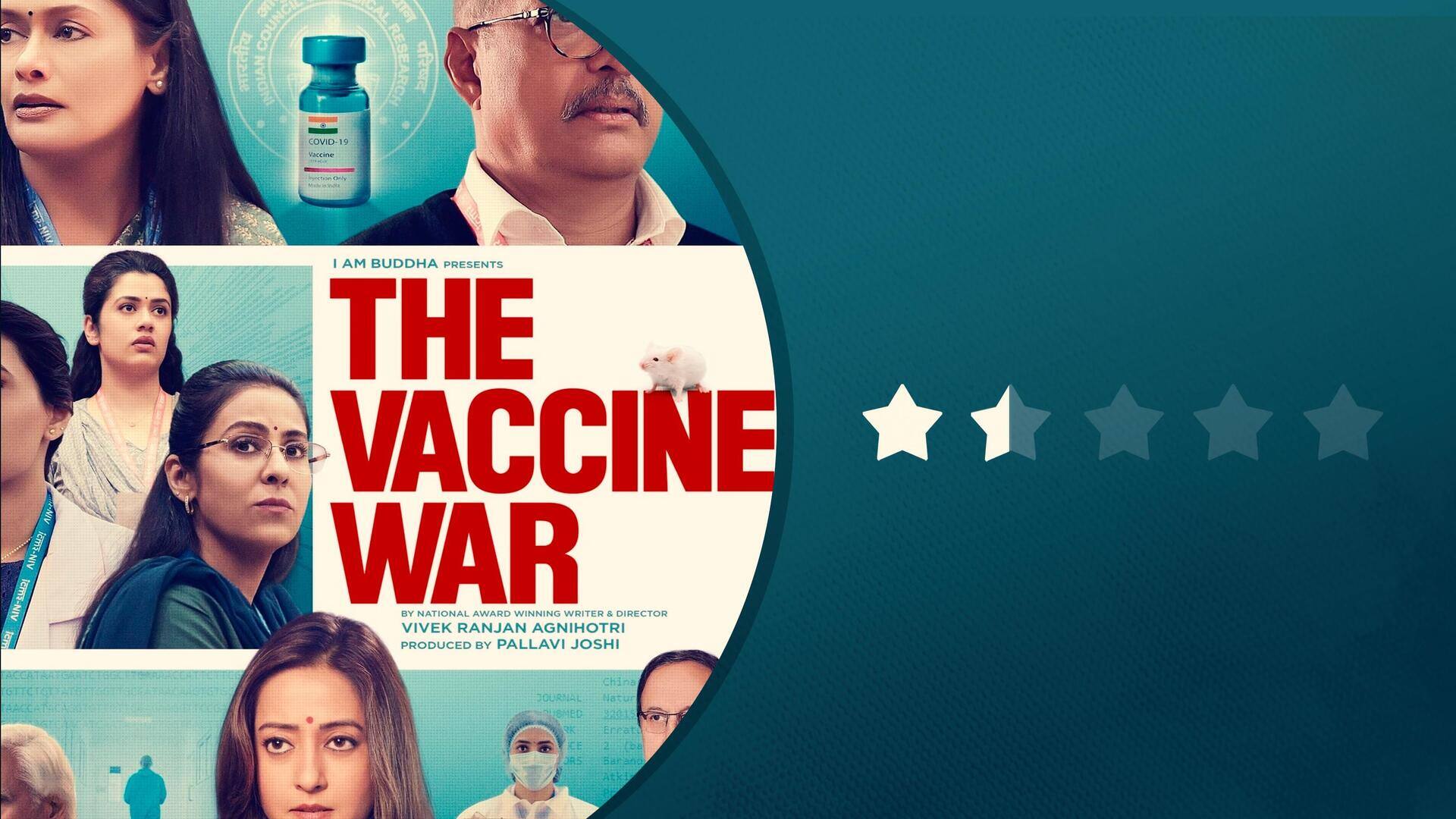
'The Vaccine War' review: Important story diluted by one-sided narrative
What's the story
Vivek Agnihotri's The Vaccine War was released on Thursday and it's based on ex-ICMR DG Dr. Balram Bhargava's book Going Viral - Making of COVAXIN: The Inside Story. An otherwise awe-inspiring story that warrants attention, it loses its impact due to an unnecessary and caricaturish portrayal of media and in many places, acts as the government's mouthpiece rather than sticking to the central story.
Plot
Familiarize yourself with the drama's story
TVW is about the development of India's first indigenous vaccine introduced during the COVID-19 pandemic and brought to life by the Indian Council of Medical Research and the National Institute of Virology. Except for Nana Patekar and some others, the team is driven by female scientists and dives deep into the roadblocks the scientific community faced while working on this mission with breakneck speed.
#1
Positives: What works for the drama
Let's dissect the redeemable qualities of the film first. From the beginning, TVW promises to stick to facts and accepts that it's only taken a few liberties to respect people's privacy. In the end credits, I was pleased to see that all the important scientists were acknowledged and notably, the actors were styled accordingly, (with their accents, hairstyle, etc. having been taken care of).
#2
There's a lot of action happening in first few scenes
For the majority of the first part, TVW engages and draws you in, for it's a reminder of a time that somehow seems both frighteningly near yet too distant. Like a documentary, it keeps hopping between places and the timeline keeps changing—the speed with which it moves is an ironic, perhaps deliberate contrast to the way lives slowed down during the first COVID-19 wave.
#3
Pallavi Joshi, Patekar's performances are its beating heart
On several occasions, the film underlines how scientists remain unsung heroes lest they "send a rocket into space." To focus on women scientists and accentuate their contribution is another appreciative move, and while some of them have personal backstories, they don't block the film's sight much. Pallavi Joshi and Patekar's charged performances are another reason why you stick with TVW till the conclusion.
#4
Negatives: What's with the caricaturish portrayal of media?
However, despite all these merits, the film digs its own grave through the way it showcases Rohini Singh Dhulia (Raima Sen), a hotshot journalist who represents the kind of conniving journalists you only see in films! She is ruthless, evil, sadistic, and committed to the country's downfall, and works in tandem with foreign agents to "spread misinformation" about "India's substandard vaccine developed hurriedly."
#5
More on the above problem
It's quite unfathomable why Agnihotri would so passionately create a character that's anti-India and reeks of misused privilege and make her the film's villain—this is a story about a global pandemic, the film already has a villain, it did not need another. Words like "foreign toolkit," "orchestrated campaign against India," and "creating a narrative" are thrown at us whenever Sen is onscreen.
#6
Loses all steam when it becomes the government's messenger
TVW—despite concentrating on stupendous frontline workers who saved millions of lives—cannot, for the life of it, stop itself from desperately seeming like the government's mouthpiece—a self-destructive choice, because once it ventures into this territory, it begins reading like a political manifesto. Bharat Biotech only gets a few mentions and the word aatamnirbhar was dropped on my head more times than I could count.
#7
The drama is too long and sometimes incoherent
Apart from these two problems, TVW is evidently infested with other issues, too, which is why it can never reach its full potential and feels too bloated, bland, and overlong (it's about two hours, 40 minutes). The story doesn't maintain coherence and jumps from one storyline to another and everything is either black or white—there is no scope of gray in this world.
#8
Can miss it in theaters, watch once on OTT
The global pandemic birthed several stories and the development of COVAXIN is extremely consequential, which is why it deserved a more engaging screenplay and less didacticism. In several ways, it reminded me of Rocketry, which, too, narrated an important story unsuccessfully. TVW eventually creaks under its own ambitions and if anything, it has left me wanting for a well-researched documentary. It gets 1.5/5 stars.